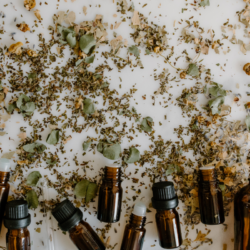Bronchitis is an acute or chronic inflammatory disease of a segment or the whole of the bronchial tree. Bronchitis has many clinical aspects, and is also known as bronchial catarrh. The disease always progresses from the upper respiratory tract to the deep bronchioles. Simultaneous involvement of the trachea and bronchi is known as tracheobronchitis.
Acute bronchitis
This is a common pathology, especially in winter, of infectious origin, with a generally favourable prognosis in about ten days.
Acute bronchitis is one of a number of upper respiratory tract infections caused by rhinoviruses, para-influenza viruses, influenza type A or type B, respiratory syncytial virus, coronaviruses or a human metapneumovirus. Bacteria, such as Mycoplasma pneumoniae, Bordetella pertussis and Chlamydia pneumoniae, cause less than 5% of cases; these sometimes occur during epidemics. Most often viral in origin, it can also be the result of, or a complication of, influenza.
It is estimated that around 10 million people suffer from this condition every year in France.
Simple chronic bronchitis
When bronchitis persists for at least 3 months over 2 consecutive years, it is known as “chronic bronchitis”.
Chronic bronchitis can be caused by smoking, working in an industrial environment or on building sites exposed to a lot of pollutants and dust, and repeated respiratory infections.
Some naturopathic advice in the event of bronchitis
- Use single-use tissues and dispose of them in a bin
- Cover your mouth and nose when sneezing
- Don’t shake hands
- Do not kiss children
- Air your bedroom well before and after sunset, except in the event of strong winds and peak pollen season
- Do not overheat your home and humidify the air
- Avoid smoking or going into smoky places
- Avoid running in damp, cold weather
- Keep the temperature between 18 and 20°C
- Avoid syrups indicated for dry coughs, as they block bronchial secretions
- If you cough at night, raise the head of your bed
- Avoid diffusing or inhaling essential oils
- Drink plenty of water
Plants and bronchitis
Medicinal plants play an essential role in the treatment of bronchitis, offering natural solutions rich in anti-inflammatory and expectorant properties to relieve respiratory symptoms.
Coltsfoot flowers :
The coltsfoot contained in coltsfoot is antitussive and respiratory stimulant. This plant is generally indicated for coughs, bronchitis and respiratory ailments. In terms of its mode of action, it inhibits PAF-acether (mediator of inflammatory phenomena).
Recommended dosage: In the event of bronchitis, drink 3 to 5 cups of coltsfoot flower infusion between getting up and going to bed. It is also advisable to sweeten the tea with honey. However, regular use should be avoided because of its long-term hepatotoxicity.
Rosewood essential oil and Cypress essential oil:
Rosewood essential oil is anti-infectious, antibacterial and stimulates the immune system. Its anti-inflammatory and analgesic action is explained by the fact that the linalool it contains binds to opioid receptors and exerts an opioid-type analgesic action. It reduces oedema caused by carrageenan, demonstrating an anti-inflammatory action.
Rosewood is also recommended for bronchopulmonary infections (including paediatric infections) such as rhinopharyngitis, bronchitis and influenza.
Cypress essential oil is immunostimulant, antitussive and anti-infectious for the lungs. It is also mucolytic, antispasmodic for the bronchi, antibacterial and antiviral. It combats bacterial biofilm. It is indicated for rhinitis, sinusitis, bronchitis, tracheitis, emphysema, dry coughs and laryngitis.
Formula: Mix Rosewood essential oil and Cypress essential oil in a 30% dilution in black cumin vegetable oil. Use the mixture on the skin for bronchopulmonary problems by applying a few drops of the preparation to the chest and upper back, 3 times a day for 4 or more days.
Alder bud glycerol macerate :
This macerate is THE remedy for any inflammatory syndrome such as rhinitis, sinusitis, tracheitis, bronchitis, gastritis, colitis, pyelitis, cystitis, etc. in addition to antibiotics if necessary.
Dosage: Dilute 10 to 15 drops in a glass of water 15 minutes before a meal until symptoms improve significantly.
Plantain EPS :
Theapigenin contained in plantain is analgesic, anti-inflammatory and smooth muscle antispasmodic in respiratory tract disorders. Its anti-inflammatory properties are due to inhibition of the production of nitric oxide NO by macrophages.
Plantain is antitussive and mucolytic, and is indicated for inflammation of the upper airways(mucilages, tannins), bronchitis and laryngitis, asthmatic coughs and allergic rhinitis.
Recommended dosage: Mix 5 ml of plantain EPS in a large glass of water, and drink 2 times a day until symptoms improve significantly.
Hyssop:
Hyssop is an aromatic plant commonly used in herbalism to treat various respiratory ailments, including bronchitis. The benefits of hyssop for bronchitis are numerous: it has antitussive, expectorant and anti-inflammatory properties, which help to relieve congestion and inflammation of the respiratory tract. It is also rich in antioxidant compounds, which help boost the immune system and protect against infection. Hyssop can be taken as an herbal tea or inhaled as a vapour to obtain the benefits for bronchitis. However, it is important to consult a healthcare professional before using hyssop to treat any medical condition, especially if you are taking medication or have a history of illness.
Lapacho:
Lapacho could be a valuable aid in combating bronchitis thanks to its antibacterial, antiviral and expectorant properties. It can be taken as an infusion. However, it is important to note that this plant can cause side effects in high doses and that some people may be allergic to it. It is therefore strongly recommended that you consult a health professional before starting a lapacho-based treatment.
Black radish:
The antioxidant and antimicrobial properties of black radish make it a potentially beneficial choice for bronchitis. Because of its active compounds, black radish can help relieve airway congestion and reduce inflammation associated with bronchitis. However, it is important to consult a healthcare professional before using black radish as an adjunct to medical treatment for bronchitis.
Conclusion
The lungs are an emunctory that is little used for eliminating waste, but in the case of bronchitis, it is important to stimulate and eliminate the glues (mucosic substances) via sputum and mucus.
Bronchial disease blocks the body’s waste evacuation function. Overloads lead to less efficient waste elimination and poorer distribution of nutrients and other transported elements, with the added risk of nutritional deficiencies.
Medical literature and clinical trials:
- Al-Snafi, A. E. (2016). Medical importance of Cupressus sempervirens-A review. IOSR Journal of Pharmacy
- Khadidja Mazari, Nassima Bendimerad, Chahrazed Bekhechi, Xavier Fernandez. Chemical composition and antimicrobial activity of essential oils isolated from Algerian Juniperus phoenicea L. and Cupressus sempervirens L. Journal of Medicinal Plants Research Vol. 4
- Orhan, I. E., & Tumen, I. (2015). Potential of Cupressus sempervirens (Mediterranean Cypress) in Health. The Mediterranean Diet
- Fleer H, Verspohl EJ. Antispasmodic activity of an extract from Plantago lanceolata L. and some isolated compounds. Phytomedicine. 2007
- Murai M, Tamayama Y, Nishibe S. Phenylethanoids in the herb of Plantago lanceolata and inhibitory effect on arachidonic acid-induced mouse ear edema. Planta Med. 1995
- Wegener T, Kraft K. Plantain (Plantago lanceolata L.): anti-inflammatory action in upper respiratory tract infections. Wien Med Wochenschr. 1999





